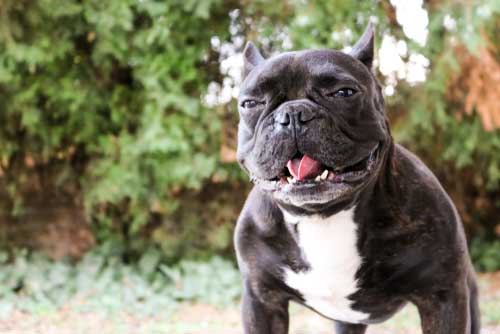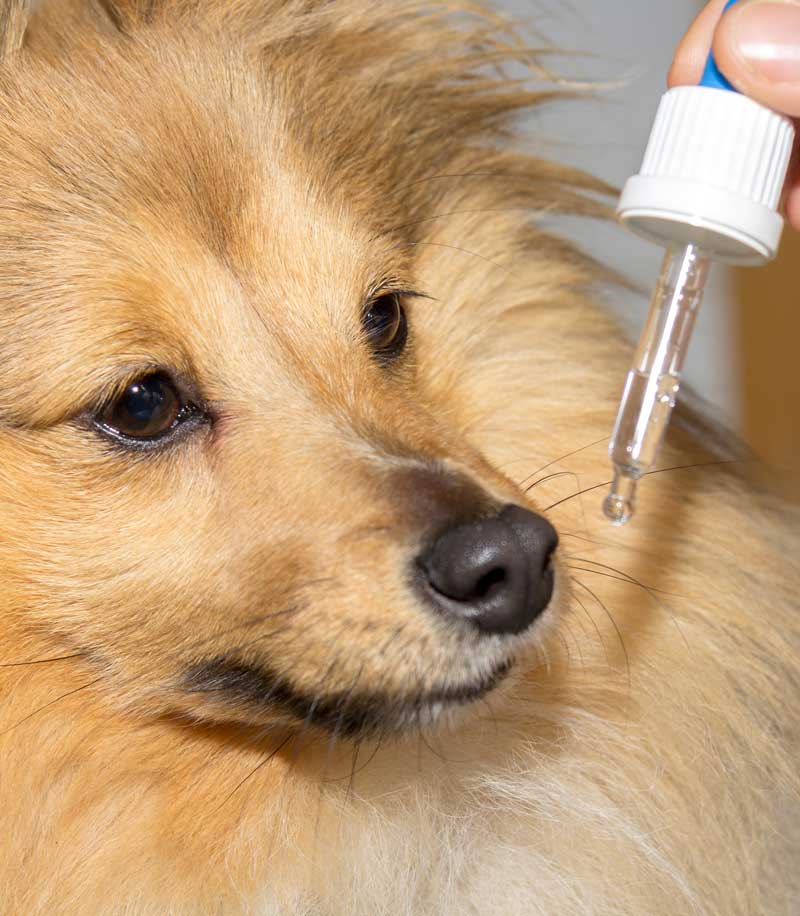If treated quickly, bronchitis in dogs can be resolved fairly easily; however, left untreated it can lead to more serious conditions such as pneumonia.
Bronchitis in dogs can become a chronic issue, in which case on-going treatment may be required. See your veterinarian if you think your dog is suffering from this condition before it becomes a more serious issue for you furry friend.
Bronchitis in dogs is the inflammation of the bronchial airways causing persistent coughing in your pooch. Middle aged dogs are usually affected by chronic bronchitis while acute or infectious bronchitis can affect dogs of all ages.
Ailment Guides:
Canine Bronchitis
What Causes Bronchitis?
Acute Bronchitis is caused by a virus and is usually transmitted from another animal. Kennel cough, distemper and parainfluenza are the most common viral causes of Bronchitis in dogs. The likelihood of a dog contracting a virus are increased significantly if they regularly share spaces with other dogs. Dog parks and kennels are often to blame for our canine companions contracting the disease. Acute Bronchitis in dogs can also be caused by:
-
- Bordetella bronchiseptica
- Streptococcus zooepidemicus
- Canine adenovirus
- Canine distemper virus
- Canine herpes virus
- Parainfluenza virus
What Symptoms To Look For In Your Dog:
Coughing persistently is the most common symptom but it’s not the only sign a dog is suffering from bronchitis. Other signs to keep an eye out for include wheezing or difficulty breathing, a fever and excessive mucus production. Also watch for sneezing, nasal discharge and changes to their routine. If your dog is eating less and more lethargic than normal, these could be early signs on Bronchitis.
Dogs are said to have Chronic Bronchitis when the symptoms, specifically coughing, have been present for over two months. It’s not really known what causes chronic cases, however, the following are believed to be contributing factors:
- Previous respiratory tract damage
- Cardiovascular disease
- Trauma
- Infection
- Age
- Regularly inhaling irritants (like cigarette smoke)
In less severe cases there is plenty you can do on your own to help your pooch through this tough time. Here are a few simple things you can start with:
- Ensure their environment is a smoke free environment
- Encourage rest and relaxation
- Weight loss can help improve the condition in overweight dogs
- Nutritional supplements
- Make sure your home is clean and disinfected
If the case is more serious and your dog is suffering from a bad bacterial infection, your veterinarian may prescribe a 3-4 antibiotic regimen. Your vet will run some tests and take a swab to help them choose the right antibiotic therapy for your dog. Remember, if you dog is suffering from infectious bronchitis that it is extremely contagious. Do what you can to keep them away from other animals while they are recovering.
Learn More:
Can Benefit Dogs Cbd For Dogs And How It Can Change Your Pets Quality Of Life
Benefits Of CBD Treats For Dogs
Cbd A Lifelong Supplement And Remedy For Your Pet
Treatments For Bronchitis
Why CBD Can Be An Effective Preventative For Dogs Bronchitis
CBD – or Cannabidiol – can support your dog’s immunity and help to prevent infections.
CBD oils and treats can assist in the prevention of infections and reduction of tumors, help to block/manage pain reception in the brain and generally provide a boost to your dog’s immune system.
As you can see by the wide scope of ailments that CBD effects, it is clear how introducing CBD into your dog’s routine can help to maintain a healthy immune system.
Ailment Guides:
Geriatric Life For Dogs
How To Calm Hyperactivity In Dogs
Heart Disease In Dogs











